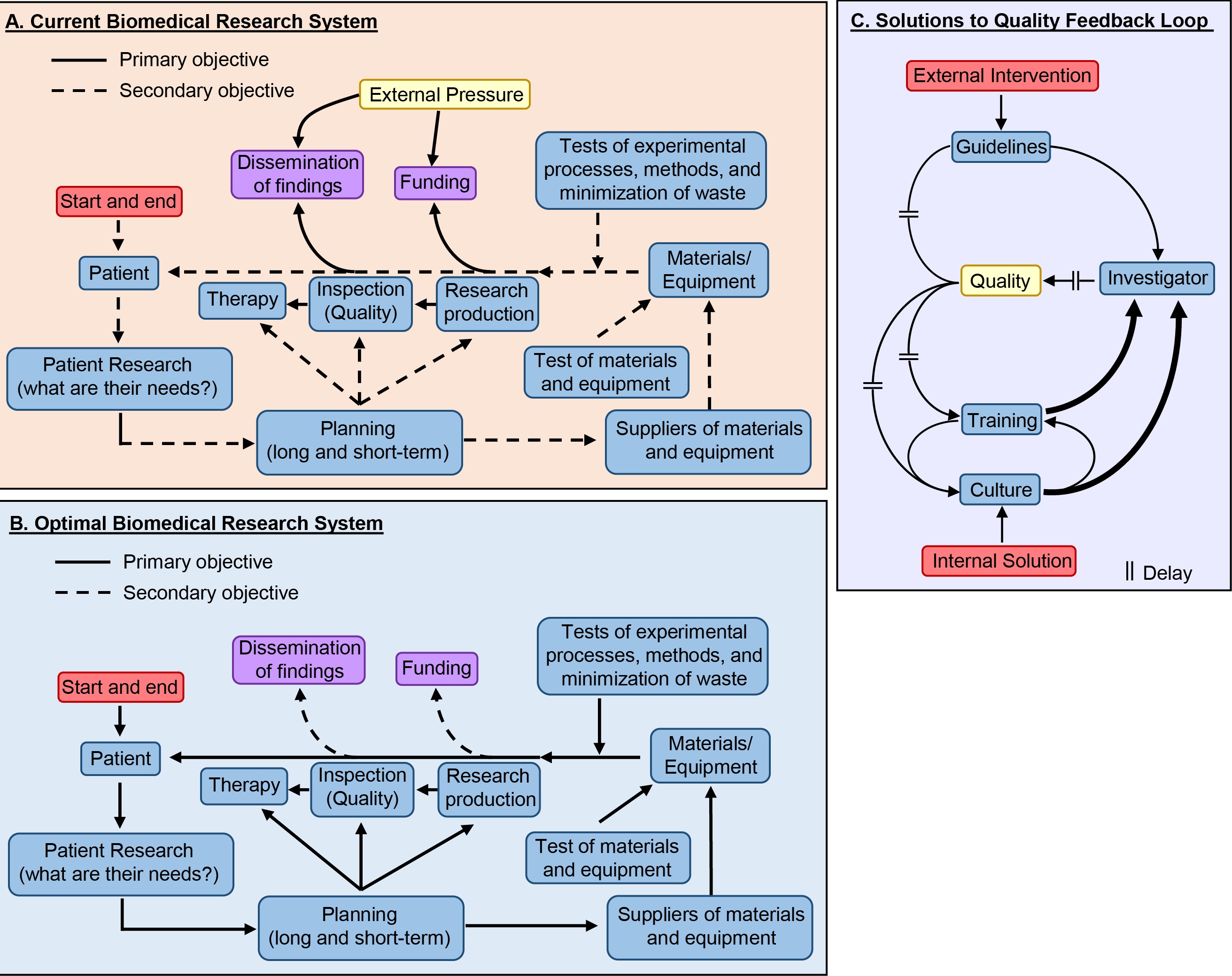There has been a growing call for reform of the U.S. biomedical community in recent years. As a community, we face a growing list of issues including excessive waste, reproducibility, bias, inadequate training, and the absence of sustainable long-term planning that detract from the overall goal of advancing human health. In response to this debate, biomedical stakeholders have taken positive steps forward to remedy these issues. However, we must continually improve upon these steps to promote the long-term stability of the biomedical enterprise. Given the widespread interest of the scientific community in addressing these issues, there exists a unique opportunity to come together and create a new era of biomedical discovery. The completion of this exciting task requires reflection on our view and management of the system, and what the best route to sustainable change may be. Importantly, a coordinated approach that considers the collective make-up of the biomedical system and how processes and people influence collective output and create value for patients is needed. Here, these three areas and the concepts of systems theory, total quality management, and organizational development and their contribution to the management and effectiveness of biomedical discovery are discussed. Importantly recommendations are made concerning overall management strategy, process efficiency and quality research, administrative tasks, organizational cultural challenges, individual and team development, and funding strategy.

